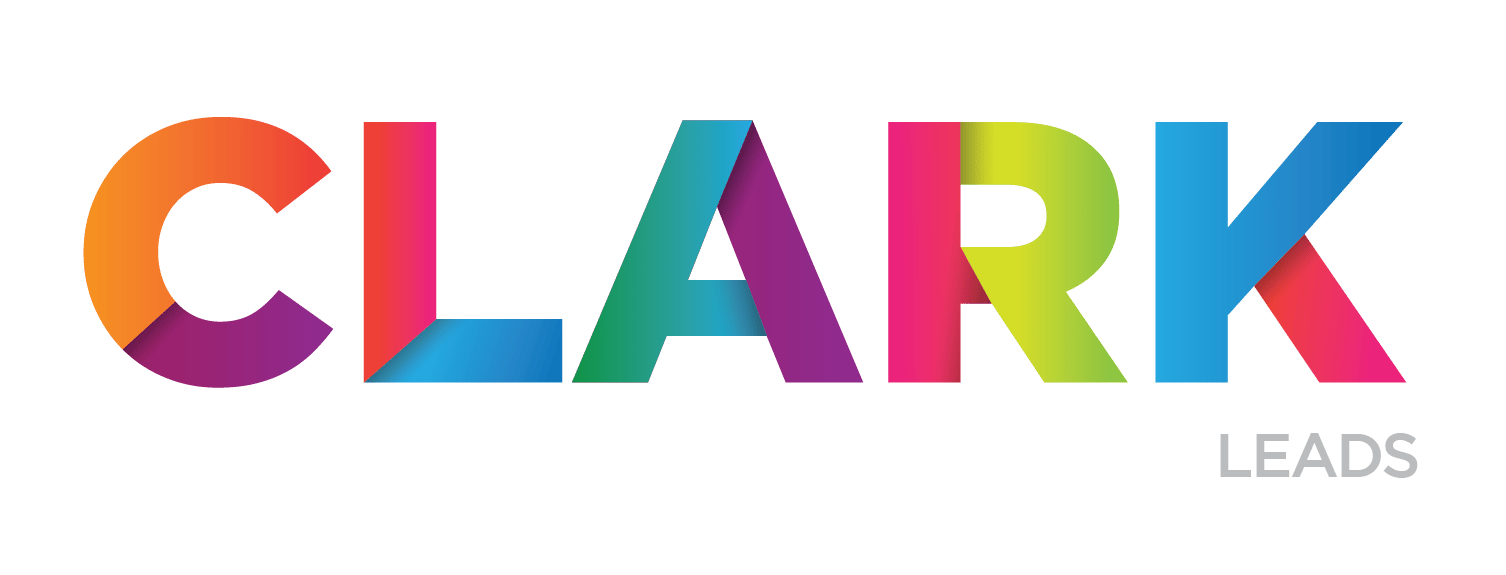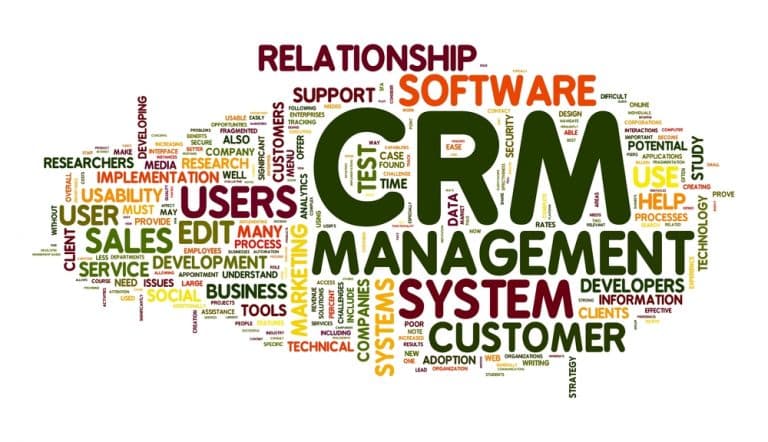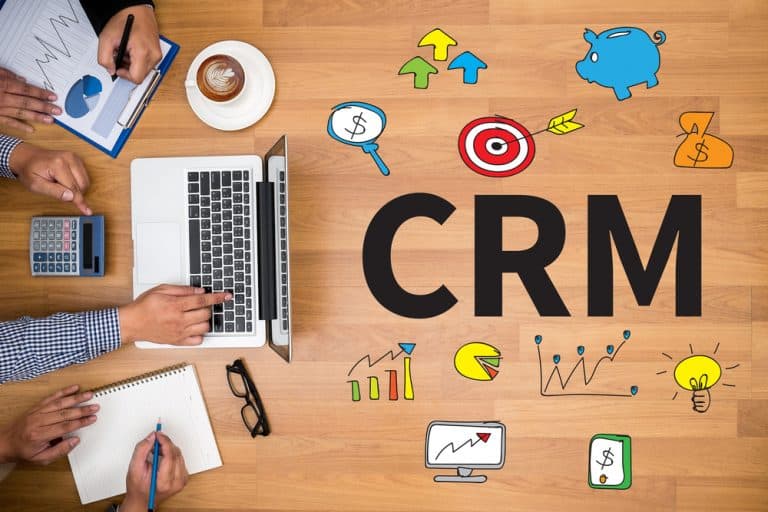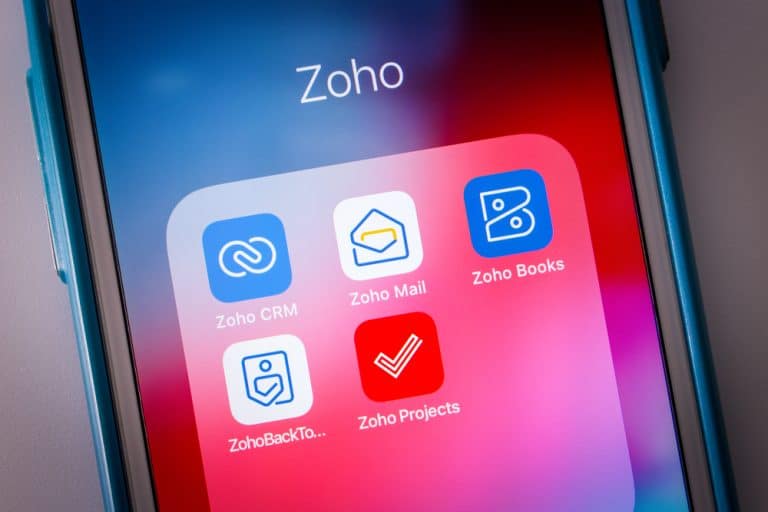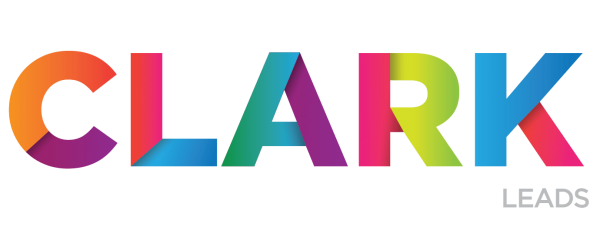CRM Software
If your business includes digital sales processes, it makes perfect sense to use a CRM software to manage your sales pipeline and close more deals.
CRM software gives you an overview of your entire sales process, from first contact with a potential customer to the final sale. It helps you keep track of your prospects and customers, so you can follow up at the right time and nurture your relationships.
CRM software also includes features that help you automate repetitive tasks, such as sending follow-up emails or scheduling appointments. This frees up your time so you can focus on selling, rather than administrative tasks.
CRM stands for customer relationship management. As the name implies, it ’s a tool for managing your relationships with your customers. It’s a crucial and indispensable component of running your business. We all know how critical customers are – they’re the lifeblood of your business.
That’s why it’s so important to have a system in place that helps you keep track of your customers, manage your interactions with them, and most importantly, nurture those relationships. A CRM software is just such a system. It’s a tool that enables you to do all of those things, and more.
The single most crucial goal of any business is to keep customers satisfied – both prospective and current. A CRM software helps you do just that. It gives you the ability to track every interaction you have with a customer, so you can ensure that their experience is a positive one.
It also allows you to monitor your sales pipeline, so you can see exactly where each prospect is in the buying cycle. This way, you can make sure that no one falls through the cracks.
Last but not least, a CRM software helps you automate tasks like sending follow-up emails or scheduling appointments. This convenience means you and your team can focus on selling stuff or offering services, which ultimately leads to profit.
Customer Relationship Management Software
We’ve all been there – the customer service representative who doesn’t know anything about our account, the sales rep who tries to sell us something we’re not interested in, or the company that doesn’t seem to care about our business.
In today’s world, good customer service is hard to find. That’s why investing in a customer relationship management (CRM) software solution is a worthy investment for any business – big or small.
A CRM software solution gives businesses the ability to manage their customer relationships in a more efficient and effective way. By having all of your customer data in one place, you can quickly and easily access the information you need to provide good customer service.
When handling business processes, especially those related to customer service, we often think of the term “automation.” But a CRM software solution is not just about automating your customer service processes.
A CRM software solution can also help you to better understand your customers by giving you insights into their behaviour. This information can be used to improve your marketing and sales strategies. Additionally, a CRM software solution can help you to build more loyalty among your customer base.
If you’re looking for a way to improve your customer service and build better relationships with your customers, a CRM software solution is a worthy investment. You may feel like there’s no immediate need for it, but trust us – your business will thank you for it in the long run.
The technology behind a CRM software answers the old question of how to best keep track of your customer relationships. This was once accomplished with a rolodex, index cards, or even just a paper and pencil. The problem with these methods is that they are very cumbersome, time-consuming, and difficult to update in real-time.
A CRM software solution provides businesses with a central repository for all customer information. This includes contact information, purchase history, preferences, and any other data that may be relevant to the relationship.
This information can be easily accessed by customer service representatives, salespeople, or anyone else in the organization who needs it. Additionally, a CRM software solution can be used to automate many of the tasks related to customer service, such as sending out automated emails or creating a ticketing system.
Customer Data
In order for businesses to be able to properly understand and serve their customers, it is essential that they have access to accurate and up-to-date customer data. This data can be used for a variety of purposes, including helping to create targeted marketing campaigns, understanding customer behaviour, and improving customer service.
In a world that relies on digital technology, it’s a sigh of relief knowing that there are plenty of ways to gather consumer data. Here are a few examples:
1. Online surveys – These can be placed on websites, social media platforms, or sent via email. They tend to be short and simple and can be an effective way to collect feedback from customers about their experience with your company.
2. Online reviews – Platforms such as Yelp and Google allow customers to leave reviews about their experiences with businesses. This data can be useful for understanding how customers feel about your company, and what areas need improvement.
3. Social media – Social media platforms like Twitter and Facebook are a goldmine of customer data. By monitoring what customers are saying about your company, you can get an idea of their needs and wants.
4. Data analytics – By tracking customers’ interactions with your website or app, you can glean valuable insights into their behavior. This data can be used to improve the customer experience, as well as marketing and sales efforts.
While it’s important to gather data from customers, it’s just as important to ensure that this data is used in a responsible way. Customers should be made aware of how their data will be used, and they should have the option to opt-out if they’re not comfortable with it being used for certain purposes.
At the end of the day, businesses need to remember that customers are people, not data points. By gathering and using data responsibly, businesses can create stronger relationships with their customers, and better serve their needs.
Best CRM
The idea behind a CRM software is to transform your business so that it focuses on being customer-centric. This means that your processes and systems are designed specifically around meeting the needs of your customers.
But you can’t just put money on something that you don’t really know. So, before you ask the question of which CRM is the best for your business, you might as well learn all the ropes first.
So, how does the best CRM software work?
In general, a CRM software is a tool that allows businesses to manage their customer relationships in an organized way. By using a CRM, businesses can track and store customer data, such as contact information, purchase history, and preferences.
This data can then be used to better understand the needs of your customers and provide them with the best possible service. In addition, a CRM can also be used to create targeted marketing campaigns and track the results of those campaigns.
But why do you need targeted marketing campaigns in the first place?
The answer is simple: not all customers are the same. And if you want to provide them with the best possible service, you need to be able to identify their needs and preferences.
That’s where CRM software comes in handy. By using a CRM, businesses can segment their customers into different groups, based on factors such as demographics, purchase history, and preferences.
This customer segmentation allows businesses to create targeted marketing campaigns that are more likely to result in sales. In addition, it also allows businesses to provide a more personalized level of service to their customers.
So, if you’re thinking about getting CRM software for your business, now you know how it can work for you. But the question still remains: which CRM software is the best for your business?
The answer to that question depends on a number of factors, such as the size of your business, your budget, and your specific needs.
If you’re not sure which CRM software is the best for your business, we’ve got you covered.
Top CRM
There are several ways to segment customers, but the most common and effective method is to use market segmentation. This process allows businesses to identify specific groups of consumers within the overall market who share similar characteristics, such as demographics, interests, needs, and buying behaviour.
By understanding these segments, businesses can develop targeted marketing campaigns that are more likely to resonate with consumers and result in conversions.
There are four main types of market segmentation:
– Demographic segmentation: This type of segmentation looks at characteristics such as age, gender, income, education level, etc.
– Psychographic segmentation: This type of segmentation looks at personality traits, values, attitudes, and lifestyles.
– Behavioral segmentation: This type of segmentation looks at consumer behavior, such as purchase history, channel preferences, and brand loyalty.
– Geographic segmentation: This type of segmentation looks at where consumers live, which can be useful for businesses with a physical location.
Businesses can use one or more of these methods to segment their customers based on specific needs and objectives. For example, a clothing retailer might use demographic segmentation to target women aged 18-34, while a luxury car company might use psychographic segmentation to target consumers with an adventurous lifestyle.
Now, what’s the role of CRM software in customer segmentation?
CRM software can be a valuable tool for businesses of all sizes to manage customer data and create targeted marketing campaigns.
For example, let’s say you run a clothing store and want to target your marketing efforts towards women aged 18-34. With CRM software, you can easily track and segment your customer data by age, gender, and other criteria. This way, you can create targeted marketing campaigns that are more likely to reach your target audience and result in conversions.
Furthermore, CRM software can help you track customer behaviour over time, which can be useful for understanding how different segments respond to different marketing strategies.
In sum, customer segmentation is a powerful marketing tool that can help businesses better understand their target consumers. CRM software is a valuable tool for managing customer data and creating targeted marketing campaigns.
Customer Manager Software
Customer manager software is a must-have for any business that wants to be successful – plain and simple. Let’s break down the rationale behind the prospect of investing in this advanced tool:
1. It provides a complete view of your customers
The software gives you a centralized view of all your customer interactions, making it easy to track their purchases, support requests, and engagement with your brand. This allows you to easily identify potential areas of improvement in your customer service or sales process. Additionally, the data collected by the software can be used to create targeted marketing campaigns that are more likely to resonate with your customers.
2. It saves time and money
By automating customer-related tasks, the software can free up your employees’ time so they can focus on other priorities. Additionally, the software can help you improve your customer service process, making it more efficient and cost-effective.
3. It enhances customer satisfaction
The software provides you with the ability to quickly resolve customer issues and track customer engagement. This can lead to increased customer satisfaction and loyalty, which can boost your bottom line.
4. It’s a necessary evil
In today’s business world, it is simply not enough to have a website and a social media presence. You need to have a way to track and manage your customer interactions. Otherwise, you risk losing out on valuable opportunities to improve your business.
5. It’s an investment, not a cost
While there is an initial investment required to purchase and implement customer management software, it is important to think of it as an investment in your business. The benefits of the software will quickly outweigh the costs, making it a wise decision for any business that wants to be successful.
If you’re still not convinced, consider this: customer management software is a tool that can help you run your business more efficiently, save time and money, enhance customer satisfaction, and even increase your bottom line. In other words, it’s a tool that can help you be more successful. If that’s not worth the investment, we don’t know what is.
Examples of CRM Software
There’s an abundance of CRM software these days, with each one providing something unique and valuable for businesses. Here are some examples of CRM software to give you an idea of what’s out there:
– Salesforce: One of the most popular CRM software options, Salesforce was designed with sales teams in mind. It includes features like lead management, opportunity tracking, and forecasting that can help sales teams stay organized and close more deals.
– HubSpot Sales: HubSpot Sales is a CRM that’s part of the larger HubSpot Suite, which also includes marketing and customer service tools. HubSpot Sales includes features like automatic lead capture, email tracking, and deal management that can help sales teams be more productive.
– HighLevel: HighLevel is a CRM that’s designed to help businesses with complex sales processes. It includes features like pipeline management, quote and proposal generation, and contract management that can help businesses streamline their sales process. Its main selling point is its ease of use, making it a good option for businesses that don’t want to deal with a complex customer relationship management software.
– Copper: Copper is a CRM that’s designed to be used by small businesses. It includes features like contact management, lead management, and activity tracking that can help small businesses stay organized and keep track of their sales processes. The simplicity of copper is its main selling point, making it a great choice for companies that don’t need too many frills.
– Zoho CRM: Zoho CRM is a CRM that’s designed for small businesses. It includes features like contact management, lead management, and activity tracking that can help small businesses stay organized and keep track of their sales processes. Like Copper, the simplicity of Zoho CRM is its main selling point.
CRM Companies
There are a lot of CRM software companies out there. Sometimes, it could overwhelm any business owner or entrepreneur. It’s true that having the luxury of choosing from hundreds of options is a good thing, but only if you know how to go about it.
The process of choosing the best customer relationship management software for your business should not be taken lightly since this will have a direct impact on your business’ success or failure.
Hence, you must factor in these things:
1. Make sure the company has a good reputation.
Check out online reviews and see what other people are saying about the company. Also, see if the company has any awards or recognitions.
2. Determine the company’s specialization.
Some companies may specialize in certain industries while others may have a more generalized focus. It’s important to know what the company specializes in so you can be sure they understand your specific needs.
3. Consider the company’s size.
This is important because you need to know if the company is big enough to support your business’ growth. At the same time, you don’t want a company that’s too big because they might not be able to give you the attention you need.
4. Inquire about pricing.
Of course, you need to know how much it will cost you to use the company’s services. But, don’t just focus on the price. Also, consider the value you’re getting for what you’re paying.
5. Ask about the company’s customer support.
Make sure the company has good customer support because you’ll need them when things go wrong or when you have questions.
6. Determine the company’s scalability.
Scalability is important because you need to know if the company can accommodate your business’ growth. Make sure they have a good track record of being able to scale up or down depending on the needs of their clients.
7. Inquire about the company’s experience.
The company’s experience is important because you want to be sure they know what they’re doing. Make sure they have a good track record and that they’re able to meet the needs of their clients.
8. Consider the company’s location.
This is important because you need to be able to visit the company when needed. It’s also important because you want to be sure the company is accessible in case you need them.
9. Ask about the company’s security.
Make sure the company has good security because you don’t want your data to be compromised. Also, make sure they have a good track record of keeping their clients’ data safe and secure.
Best Sales CRM
Sales CRM systems are designed to help sales teams keep track of their customer relationships and manage their sales pipeline more effectively. But with a gazillion of different CRMs on the market, it can be difficult to know which one is right for your team. Here are some of the attributes that the best sales CRMs should have:
– Ease of use: The best customer relationship management software is designed to be user-friendly and easy to learn. They should have an intuitive interface that makes it easy for salespeople to input data and manage their contacts.
– Comprehensive features: The best sales CRMs will offer a wide range of features to help sales teams track their pipeline, manage their customer relationships, and close more deals.
– CRM integrations: The best sales CRMs should integrate with other business software, such as email platforms, customer support systems, and accounting software. This will make it easy for sales teams to manage their entire workflow from one platform.
– Customer support: When you’re using a sales CRM solutions, you should have access to customer support if ever you have any questions or run into any issues. The best CRMs will offer 24/7 customer support so you can always get help when you need it.
Although there are a handful of other attributes and features to factor in, you’re better off focusing on these four when choosing a sales CRM for your team. If you can find a CRM that meets all of these criteria, you’re sure to have a valuable tool that will help your team close more deals and for business expansion.
Keep in mind that the best sales CRMs are constantly evolving, so make sure to choose one that is regularly updated with new features. Otherwise, you may find yourself using an outdated system that doesn’t offer the latest and greatest tools for your team.
Best CRM Tools
CRM tools come in a wide array of choices. Sometimes, it’ll be hard for someone who has limited knowledge to find the best tool that’ll address his/her needs.
That’s why we’ve listed the top 10 best CRM solutions that are available in the market today:
1 – HighLevel
HighLevel may be a newcomer, but it packs a serious punch as a CRM tool. It’s got all the features that you’ll need to manage your customer relationships, and it integrates with a wide array of apps and tools. You’re also getting an ai powered sales assistant.
2 – Salesforce CRM
Salesforce is popular for a good reason. It affords and delivers a comprehensive set of features, and it has a vast ecosystem of add-ons and integrations. It’s also very user-friendly, so you’ll be able to get up and running quickly.
3 – HubSpot Sales CRM
HubSpot Sales CRM is a great choice if you’re looking for a tool that’s both powerful and easy to use. It has a clean interface, and it offers a wide range of features. Also, hubspot crm is free, so you can try it out without commitment.
4 – Zoho CRM
Zoho CRM is another tool that offers a comprehensive set of CRM solutions. It’s also very user-friendly, and it has a free plan that allows you to get started quickly.
5 – Pipedrive
Pipedrive is a great choice for sales teams that need a tool that’s easy to use and visualize. It offers a simple interface, and it’s very affordable
6 – SugarCRM
SugarCRM is a darkhose in this list, but the fact that it’s open-source makes it a great prospect for those who are looking for a customizable CRM solution.
7 – Infor CRM
Infor CRM is a comprehensive tool that offers a wide range of features. It’s also very user-friendly, and it integrates with a wide range of business applications.
8 – Microsoft Dynamics CRM
Microsoft Dynamics CRM is a great choice for those who are looking for a tool that’s both powerful and easy to use. It has a wide range of features, and it integrates with Microsoft Office and Outlook.
9 – Oracle Sales Cloud
Oracle Sales Cloud is a great choice for sales teams that need customer relationship management systems that are both powerful and easy to use. It offers a wide array or collection of features, and it integrates with a wide range of business applications.
10 – Sage CRM
Sage CRM is a great choice for those who are looking for a tool that’s both powerful and easy to use. It has a wide range of features, and it integrates with a wide range of business applications.
CRM Business
CRM has effectively become a necessity rather than a ‘nice to have’ for businesses in all industries and of all sizes.
The benefits of customer relationship management systems are too significant and impactful to ignore, which is why the CRM software market is expected to be worth $80 billion by 2025.
But what exactly is the value of CRM for businesses?
CRM systems help businesses by providing a 360-degree view of each customer. This means that businesses can see all interactions a customer has had with the company, including phone calls, emails, support tickets, social media posts, and more.
This information is vital for providing a good customer experience because it helps businesses understand what a customer needs and how best to communicate with them.
Additionally, CRM systems automate tasks that would otherwise be manual and time-consuming, such as data entry and lead generation. This saves businesses valuable time and resources that can be better spent elsewhere.
Last but not least, the best crm software will help businesses to track their performance by providing data and insights on things like customer acquisition and retention rates, sales pipeline progress, and more.
This information is essential for making informed decisions about where to focus your efforts in order to grow your business.
In short, the value of CRM for businesses is clear. CRM systems provide a wealth of benefits that help businesses to run more efficiently and effectively, while also providing valuable insights into their performance. If you’re not using a CRM system already, now is the time to start reaping the rewards.
Sales CRM Software
Online CRM software is a must-have for any company seeking to enhance its customer relationship management. The investment in this software will put your company way ahead of your competitors.
But for this investment to translate into success, you must choose the ideal CRM software for your business. This can be a daunting task with the many options in the market.
But don’t worry, we have created a comprehensive guide on what to look for when choosing the best CRM software.
The first thing you need to do is understand your business needs. What processes do you want the software to automate?
Do you want a system that will just capture data or one that will help you track and manage your customer relationships? These are important questions to answer as they will determine the features you should look for in CRM software.
Some of the must-have features in any good CRM software include contact management, Lead management, Opportunity management, and Pipeline management.
These features mean you have an effective tool to track of your customers, leads, and opportunities at every stage of the sales process.
In addition to these essential features, you should also look for the best CRM software that is easy to use and comes equipped with a user-friendly interface.
It should be easy to install and set up, and you should be able to get started using it quickly. The software should also be scalable so that it can grow with your business.
Finally, make sure that the CRM software you choose is affordable and offers a free trial so that you get to try it out before you put your effort and time using it.
Most Popular CRM
Some notable features make a CRM software stand out from the rest. Let’s dig in on what we think are the most critical traits:
1 – Keep Track of Customer Data and Interactions
Any business that caters to the needs of its customers need help in managing customer interactions and data. A good CRM will have features that make it easy to keep track of every conversation, email, phone call, or meeting with a client.
2 – Understand Your Customers
In order to best serve your customers, you need to understand them on a deeper level. CRM software provides valuable insights that help you get to know your customers better. You can track their buying habits, preferences, and pain points.
3 – Increase Sales and Close More Deals
CRM software helps sales teams close more deals by giving them the tools they need to succeed. With a good CRM in place, sales reps can focus on selling, rather than administrative tasks. The best CRMs come with features like lead and contact management, opportunity tracking, and quote creation.
4 – Streamline Your Business Processes
A good CRM will help you streamline your business processes by automating repetitive tasks. This frees up your time so you can focus on more important things, like growing your business.
5 – Improve Customer Satisfaction
Customer satisfaction is highly critical to the success of any business. CRM software helps you improve customer satisfaction by giving you the tools you need to provide excellent customer service. With a good CRM, you can track customer complaints, requests, and compliments. You can also use it to create and manage customer support tickets.
6 – Get a 360-Degree View of Your Business
The best CRM software affords you a complete view of your business, from leads and contacts to opportunities and deals. This information is valuable in understanding the health of your business and making decisions about where to focus your efforts.
7 – Save Time and Money
A good CRM can save you both time and money. By automating repetitive tasks and providing valuable insights, a CRM can help you run your business more efficiently. This can free up time and resources that can be better spent on other areas of your business.
8 -Integrate With Other Business Systems
A good CRM will integrate with other business systems, like your accounting software or email marketing platform. This gives you a complete view of your business and helps you avoid data silos.
CRM System Software
You get to put your hands on a bevy of CRM systems – from affordable and simple programs to the more comprehensive and expensive solutions. How would you decide which CRM system is right for your business? Here are some factors to consider:
Company Size
If you happen to be running a small or medium sized company, you may not need all the bells and whistles that come with a more comprehensive CRM system. Some of the features offered by enterprise-level CRM systems, such as campaign management and customer service automation, may not be necessary for your business. In this case, you can save money by choosing a less expensive CRM system that offers the features you need.
On the other hand, if you have a large company with a complex sales process, you’ll need the best CRM software that can handle a large volume of data and offers features such as lead management and pipeline management.
Sales Process
Consider the sales process of your company when choosing a CRM system. If you have a simple sales process, you may not need a CRM system with complex features. However, if your sales process is more complex, you’ll need the best CRM software that can help you manage and automate your sales process.
Budget
Of course, you’ll also need to consider your budget when choosing a CRM system. There are many affordable CRM systems on the market, as well as more expensive enterprise-level solutions. Choose the CRM system that fits your budget and offers the features you need.
CRM System Best
Easier said than done – that’s usually the first thing that’ll come to mind when you think about finding the right CRM system. It can be quite overwhelming and time-consuming to evaluate all the different options, but it’s definitely worth it in the end.
After all, your CRM system is essentially the backbone of your business, so you want to make sure you choose one that’s going to be able to support your needs and help you grow.
Lead Management and Sales Pipeline
One of the most important things to look for in a CRM system is lead management and sales pipeline features. These will allow you to keep track of your leads and customers, as well as see where they are in your sales funnel.
This is crucial for helping you close more deals and keeping your business growing.
Analytics and Reporting
Another important thing to look for is analytics and reporting features. These will allow you to see how your CRM system is performing and what areas need improvement.
This is essential for making sure your CRM system is working effectively and helping you grow your business.
Customer Support
Last but not least, you want to make sure the CRM system you choose has excellent customer support. This is important for getting help when you need it and ensuring that your system is always up and running.
CRM Software Company
Partnering with a CRM software company can be a great way to improve your business operations and customer relations. But how do you find a reputable and reliable CRM software company? Here are a few tips:
1. Do some research. Before selecting a CRM software company, take the time to research your options. Compare features and pricing, read online reviews, and talk to other businesses that have used the software. This will help you narrow down your options and select a company that is right for your business.
2. Consider your needs. Not all CRM software companies offer the same features and functionality. Think about what you need from the best CRM software and find a company that offers those specific features.
3. Ask for references. Once you’ve narrowed down your options, contact each company and ask for references from businesses that have used their software. This will give you a chance to hear first-hand about the quality of the software and the company’s customer service.
4. Get a demo. Once you’ve selected a few companies, schedule a demo of their software. This will give you a chance to see how the software works and make sure it meets your needs.
5. Compare prices. CRM software can be expensive, so be sure to compare prices before making your final decision. Choose the company that offers the best value for your money.
Frequently Asked Questions
Various software programs are aptly classified as CRM software. Some of the more popular ones include Salesforce, Microsoft Dynamics, and Oracle. However, there are many other CRM software programs on the market catering to different needs.
When choosing the best CRM software program, you ought to consider your specific business needs and find a program that offers the features and customization you demand.
Choosing the right CRM software for your business can be a daunting task. There are so many different programs on the market, and each one offers its own unique set of features. It is important to take the time to assess your specific business needs before making a decision. Once you know what you need, you can narrow down your choices and find the CRM software that is right for you.
The following are some things to keep in mind when choosing a CRM software program:
- business requirements
- useful features
- customization options
- ease of use
- integration capabilities
- price
You should also consider whether you need a cloud-based or on-premise CRM solution. Cloud-based CRM solutions are typically more affordable and easier to implement, but they may not offer the same level of customization and control as on-premise solutions.
Lastly, make sure to choose a CRM software program that has good reviews from other users. Reading online reviews can give you a good idea of what to expect from a particular CRM software program.
You can’t answer this question without knowing more about your specific needs. HubSpot, Salesforce, and Zoho CRM are just a few of the most popular CRM solutions.
If you’re not sure which software would be best for your business, you can always consult with a CRM expert to get started. There’s no need to stress yourself in identifying which CRM is perfect for your business as long as you consult with the experts. Also, you increase the likelihood of getting the best software for your business by researching various CRM options.
Your business’ needs are a priority here. In other words, the best software for your CRM needs might not be the most popular one. It all depends on what your business requires from its CRM solution. For example, a small business might not need all the features that come with Salesforce. In this case, another CRM software like HubSpot could be a better fit.
Another example is when a business requires more customization. In this case, Zoho CRM would be a better software option since it’s known for its high degree of customization.
There’s more to CRM software than merely the ability to keep your business contacts and customer management processes organized. If you’re hoping to get the most out of the decision to invest in CRM automation, then you should focus on platforms that offer a suite of features designed to support your entire sales and marketing pipeline.
From contact management and lead capture to opportunity tracking and customer service, a comprehensive CRM software solution will give you the power to streamline all of your company’s customer-facing operations.
Moreover, you must factor in the scalability of the platform you’re considering. As your business grows, you’ll want a CRM system that can accommodate an increase in users, data, and processes.
Don’t’ forget to pick a CRM software solution that integrates with the rest of your business applications. A good CRM system should play nice with your accounting software, email marketing platform, live chat tool, and any other software you rely on to run your business.
Likewise, you ought to choose a CRM solution that offers robust reporting and analytics capabilities. The ability to track your sales and marketing performance will be crucial to your success. Why is this important? Well, without data-driven insights, you’ll have no way of knowing what’s working and what isn’t in your customer-facing processes.
Of course, you should also make sure that the CRM system you select is easy to use. Even the most feature-rich platform won’t do you any good if your employees can’t figure out how to use it.
Finally, don’t forget to consider the cost of the CRM software solution you’re thinking about investing in. Make sure that the price fits within your budget and that the features offered are commensurate with what you’re willing to pay.
CRM software is more than what most people think it is. It may not be a staple for small and medium-sized businesses, but for larger businesses, it can be a powerful tool to manage customer interactions.
There’s more to it than just managing customer relationships. The truth is CRM software, for it to work wonders, must be equipped with a host of features and functionalities. Here are some of the must-haves:
Lead Management – The bread and butter of any CRM software is, of course, managing leads. It helps you track where your leads are coming from, how they were generated, and the status of each lead.
Contact Management – A good CRM should also have a contact management system that lets you keep track of all your customers’ contact information in one place. This way, you can easily get in touch with them when needed.
Opportunity Management – Another important feature of a CRM software is opportunity management. This lets you track the progress of each sale and see which ones are more likely to convert.
Pipeline Management – A good CRM software should also have a pipeline management system that lets you see the status of each lead and where they are in the sales process.
Quote Management – The best CRM software should also have a quoting system that lets you create and manage quotes for your customers. With it, you easily keep track of the progress of each sale and make sure that all the necessary information is included in the quote.
Invoicing – A good customer relationship management software should also have an invoicing system that lets you create and manage invoices for your customers. You get to keep track of the progress of each sale and make sure that all the necessary information is included in the invoice.
Territory Management – A good CRM software should also have a territory management system that lets you keep track of your sales territories. This functionality allows you to see which areas need more focus and attention.
Account and Contact Management – A good CRM software should also have an account and contact management system that lets you keep track of your customers’ account information and contact details in one place.
Workflow Management – A good CRM software should also have a workflow management system that helps you automate your sales process. With it, you can easily keep track of the progress of each sale and make sure that all the necessary information is included in the workflow.
Campaign Management – A good CRM software should also have a campaign management system that lets you easily create and manage marketing campaigns. With it, you can track the performance of each campaign and see which ones are more successful.
Quota and Commission Tracking – A good CRM software should also have a quota and commission tracking system that lets you keep track of your sales goals and commissions. This way, you can easily see which salespeople are meeting their quotas and which ones need to improve.
The best CRM in 2020 is HighLevel. It is a CRM software that helps businesses manage their customer relationships. It offers features such as contact management, sales automation, and marketing automation.
There are three types of CRM: operational, analytical, and collaborative. Operational CRM helps businesses manage their day-to-day operations. Analytical CRM helps businesses analyze customer data. Collaborative CRM helps businesses manage their customer relationships.
The most popular CRM is Salesforce. It is a CRM software that helps businesses manage their customer relationships. It offers features such as contact management, sales automation, and marketing automation.
We believe HighLevel is currently the top CRM software on the market. It helps businesses manage their customer relationships and offers features such as contact management, sales automation, and marketing automation.
Customer management software is used by businesses to manage their consumer interactions. Features include contact management, sales automation, and workflow automation.
HighLevel is the perfect example of an efficient CRM software. It delivers features such as contact management, sales automation, and marketing automation–everything you need to manage your customer relationships in one place!
The best CRM software is HighLevel. It’s a marketing software that helps companies manage customer relationships and includes features such as contact management, sales automation, and marketing automation.
Salesforce is the most widely used CRM system. It’s a customer relationship management (CRM) software that helps organizations manage their client connections. Contact management, sales automation, and marketing automation are some of its features.
There are several excellent CRM software firms, but we think HighLevel is the finest. This CRM enables companies to manage their customer relationships and offers features such as contact management, sales automation, and workflow automation.
There are many excellent sales CRMs on the market, but we believe HighLevel is the best. It’s an all-in-one solution with a highly customizable interface, making it perfect for businesses of any size. Plus, it offers features such as contact management, sales automation, and marketing and workflow automation.
HighLevel has the highest satisfaction rating among CRM software. It is a customer relationship management software that helps businesses manage their customer relationships. Some of its most sought-after features include contact management, sales automation, and marketing automation.
A CRM tool is best described as a software that helps businesses manage their customer relationships. For the most part, it handles contact management, sales automation, and marketing automation.
One of the most popular CRMs, Salesforce, is a great example of how CRM works. It helps businesses manage their customer relationships and offers features, i.e., marketing automation, sales automation, and contact management.
The best CRM system is HighLevel. The way it works is distinct because it helps businesses manage their customer relationships and sales, while also offering features such as contact management, sales automation, marketing automation, and workflow automation, among others.
Based on our experience, and we’ve seen and tried a lot, HighLevel has the best CRM for small businesses. The reason is that it’s affordable, easy to use, and very customizable. And the customer service is great!
Client Testimonials

